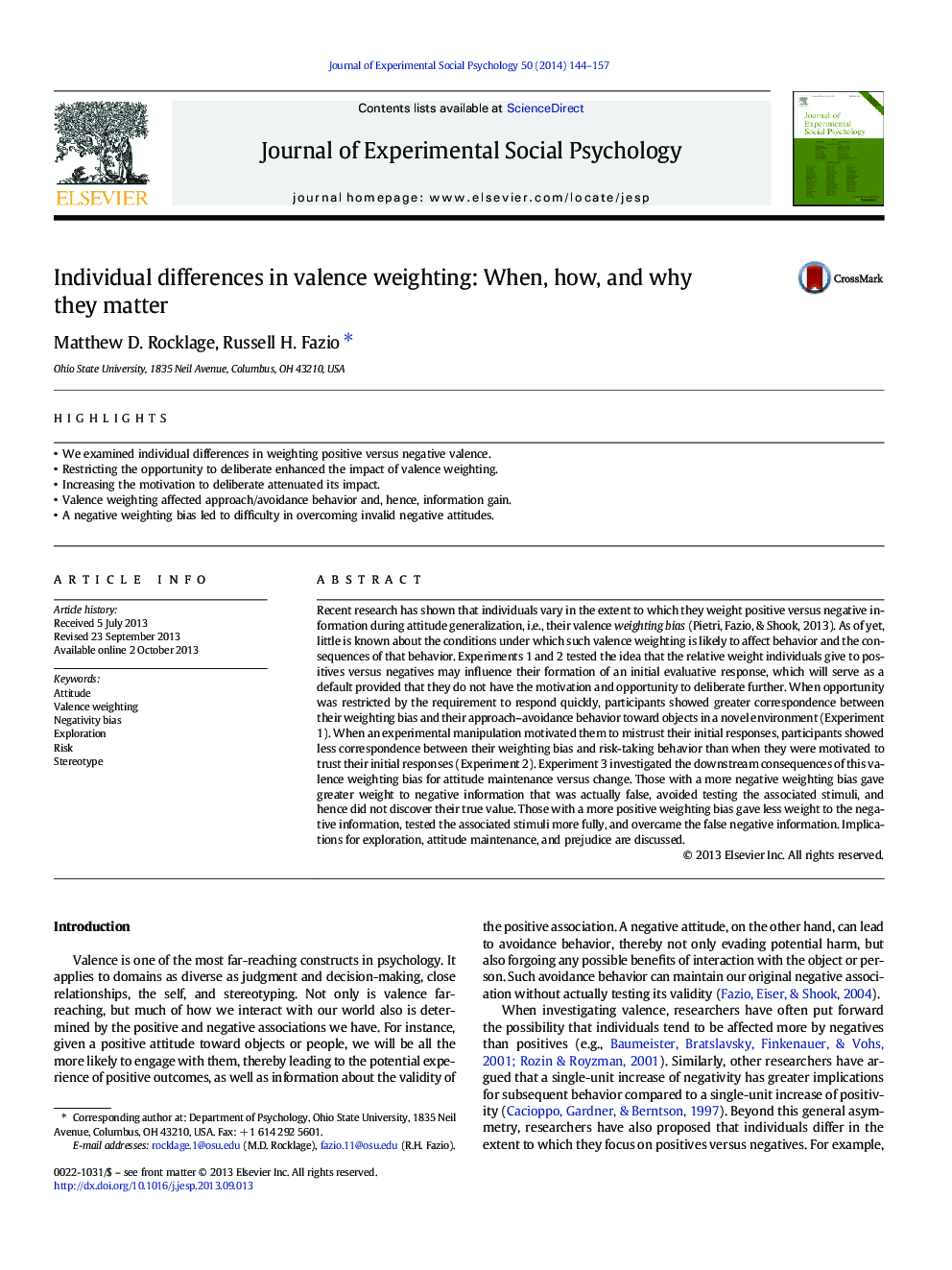| Article ID | Journal | Published Year | Pages | File Type |
|---|---|---|---|---|
| 7324920 | Journal of Experimental Social Psychology | 2014 | 14 Pages |
Abstract
Recent research has shown that individuals vary in the extent to which they weight positive versus negative information during attitude generalization, i.e., their valence weighting bias (Pietri, Fazio, & Shook, 2013). As of yet, little is known about the conditions under which such valence weighting is likely to affect behavior and the consequences of that behavior. Experiments 1 and 2 tested the idea that the relative weight individuals give to positives versus negatives may influence their formation of an initial evaluative response, which will serve as a default provided that they do not have the motivation and opportunity to deliberate further. When opportunity was restricted by the requirement to respond quickly, participants showed greater correspondence between their weighting bias and their approach-avoidance behavior toward objects in a novel environment (Experiment 1). When an experimental manipulation motivated them to mistrust their initial responses, participants showed less correspondence between their weighting bias and risk-taking behavior than when they were motivated to trust their initial responses (Experiment 2). Experiment 3 investigated the downstream consequences of this valence weighting bias for attitude maintenance versus change. Those with a more negative weighting bias gave greater weight to negative information that was actually false, avoided testing the associated stimuli, and hence did not discover their true value. Those with a more positive weighting bias gave less weight to the negative information, tested the associated stimuli more fully, and overcame the false negative information. Implications for exploration, attitude maintenance, and prejudice are discussed.
Related Topics
Life Sciences
Neuroscience
Behavioral Neuroscience
Authors
Matthew D. Rocklage, Russell H. Fazio,
